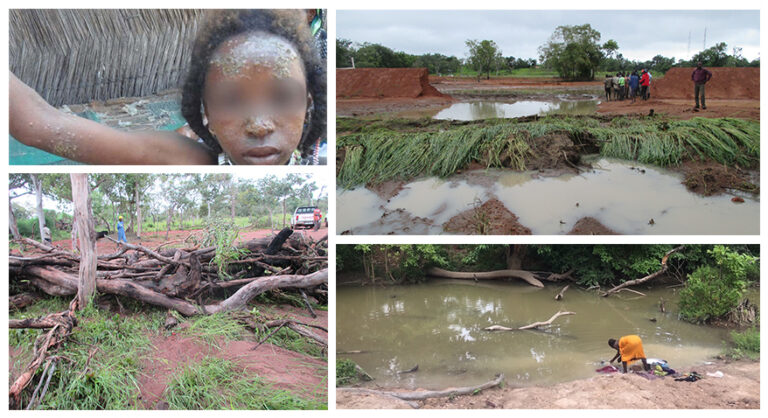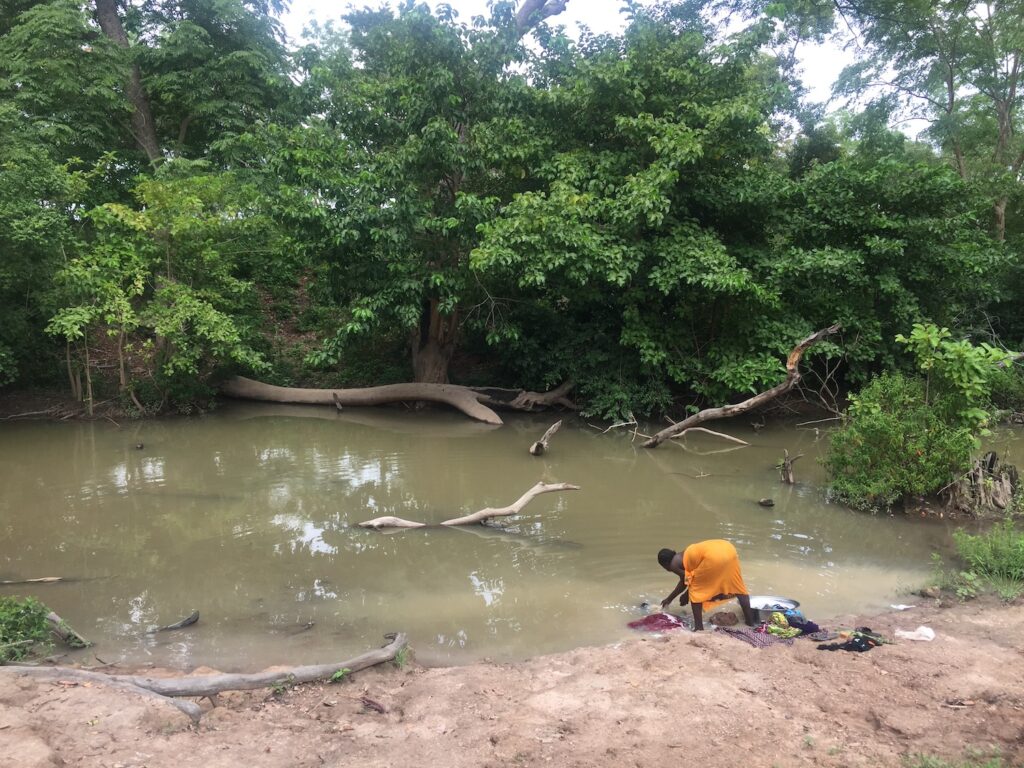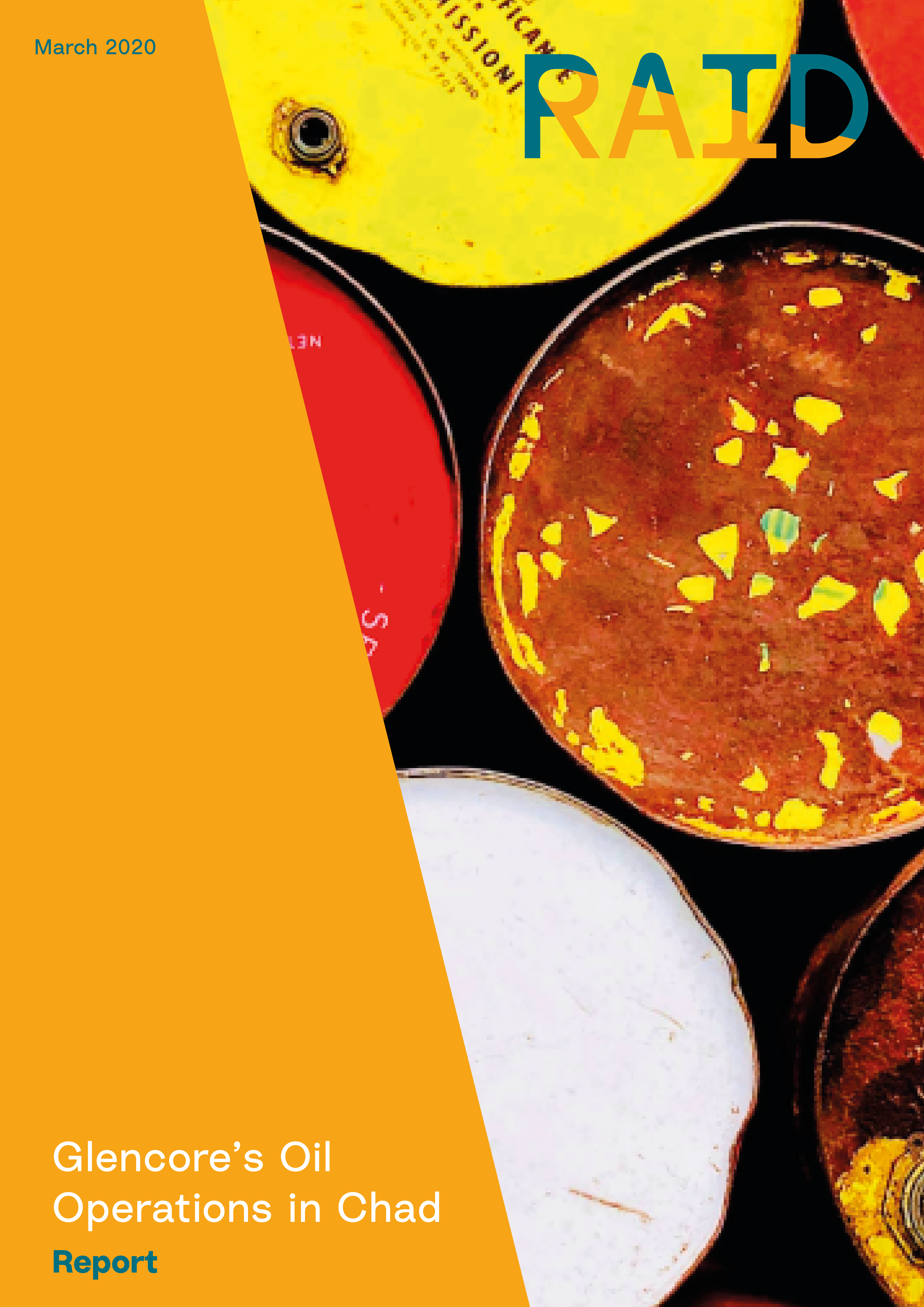Local communities were harmed by toxic spill in Chad after oversight failures at Glencore’s London headquarters
The British government has today found that Glencore UK failed to take appropriate measures to prevent and mitigate a 2018 toxic spill at its Badila oilfield in Chad, breaching the OECD Guidelines for Multinational Enterprises on Responsible Business Conduct. An estimated 18,000 people live in the vicinity of the Badila oilfield.
Glencore is listed on the London Stock Exchange and is one of the world’s largest natural resource companies. Its oil business is managed by Glencore UK Ltd out of its London headquarters.
The findings were made by the UK National Contact Point (NCP) at the Department for Business and Trade, which implements the Guidelines for responsible business conduct of UK-based companies. The Guidelines set standards for issues including human rights, labour rights and environmental practices.
In its statement published today, the NCP publicly criticised Glencore UK for failing to adequately identify, prevent and mitigate the human rights and environmental risks at the Badila oilfield operated by its then wholly owned subsidiary PetroChad Mangara Ltd (PCM). It found that Glencore UK had a business relationship with PCM, and that although Glencore UK was not directly responsible for the spill, it breached its due diligence responsibilities.
Civil society complaint highlights harms caused
The long-overdue NCP findings were in response to a detailed complaint on behalf of local communities filed in 2020 by UK-based corporate watchdog RAID, the Public Interest Law Center (PILC) in Chad and the Association of Young Chadians of the Petroleum Zone (Association des Jeunes Tchadiens de la Zone Petroliere – AJTZP).
The complaint set out the effects of a toxic wastewater spill on 10 September 2018 when a basin holding ‘produced water’ – a by-product of crude oil production – collapsed at the Badila oilfield. Eighty-five million litres of wastewater (the equivalent of 34 Olympic-sized swimming pools) flooded agricultural fields before pouring into the Nya Pende River. Local residents rely on the river for drinking, bathing, washing clothes and watering livestock. A few weeks later, residents also reported an oil pipe leak, an incident contested by the company.
At least 50 local residents living near Glencore UK’s oil operations reported burns, skin lesions, sickness and diarrhoea after bathing in or using the contaminated river water in the weeks following the incidents. Many of those harmed were children, some of whom were hospitalised. Livestock drinking from the river also died.
Anneke Van Woudenberg, RAID’s Executive Director, stated:
“Glencore UK’s failure to conduct proper human rights due diligence has had devastating consequences for communities living near the Badila oil field. While we welcome the NCP’s findings that Glencore UK failed to prevent these harms, it is troubling that the company is not being held accountable for remedying the damage caused.
Not only does the NCP’s decision contradict UK legal precedent, which establishes that parent companies may owe a duty of care to individuals and communities harmed by their subsidiaries’ actions, it also severely fails local communities impacted by the company breaching its responsibilities.
The UK NCP has missed a crucial opportunity to reinforce to UK companies the importance of upholding responsible business practices and the necessity to provide remedies when their actions cause harm.”
According to residents, the basin had been leaking weeks before it collapsed, but Glencore UK failed to properly address the problem or to warn local residents about the impending danger. Residents say the company has still not acknowledged the harm caused or provided remedy, despite the devastating losses.
Frustration with the NCP’s decision
The three groups – RAID, PILC and AJTZP – welcome the NCP’s decision that Glencore UK breached the OECD Guidelines but said they are disappointed the NCP did not consider Glencore UK responsible for remedying the human rights impacts of the Badila spill.
While the NCP viewed the company’s UK headquarters as being at arms-length from the harm caused on the ground, the NGOs argued that, as the 100% owner of PCM, Glencore UK had a greater responsibility for its Chadian operations than the NCP’s characterisation that they held a weaker “business relationship”.

As Glencore sold PCM to the French company Perenco in June 2022, the UK NCP identified four recommendations to strengthen Glencore’s due diligence practices in other and future activities, but did not suggest remedy for the specific case of the Badila spill. The recommendations include: to improve policies on carrying out effective due diligence with regards to its business relationships; to reference due diligence in its environmental policy; to ensure the company’s complaint mechanism is effective and accessible; and to develop and publish due diligence reports regularly.
Aristote Benainou Ngarkaya, President of AJTZP, stated:
“The NCP’s recommendations are insufficient. Although Glencore no longer owns PCM, residents continue to live in a polluted area and suffer from the wastewater spill’s effects. After six years of waiting and an excessively drawn-out UK NCP process, who will provide the remedy they deserve? Glencore UK should own up to its actions and provide full compensation to those affected.”
Glencore UK’s ongoing troubles
The NCP’s decision follows years of international investigations into acts of bribery and corruption by Glencore, including by its UK oil subsidiary. In May 2022, Glencore pled guilty to corruption charges brought against it in the US for widespread bribery in countries across the globe. A month later, in June 2022, its UK subsidiary Glencore UK pled guilty to seven counts of bribery for preferential oil deals in West Africa. A UK court later ordered it to pay £280 million. In August 2024, the UK Serious Fraud Office further charged Alex Beard, who ran Glencore’s oil division from 2007 to 2019 for corruption, alongside others Glencore UK staff. The case is ongoing.
Further background:
- The UK NCP’s Initial Assessment, the complaint filed to the UK NCP, and RAID’s press release at filing can be found here.
- RAID’s 2021 press release can be found here.
- RAID’s March 2020 report, Glencore’s Oil Operations in Chad: Local Residents Injured and Ignored, can be found here.
- Correspondence between RAID, AJTZP, PILC and Glencore in March 2020 can be found here.
The OECD Guidelines for Multinational Enterprises are the only government-backed international instrument on responsible business conduct with a built-in grievance mechanism. Although the OECD Guidelines are not legally binding on companies, they are binding on signatory governments, such as the UK, which is required to ensure the Guidelines are implemented and observed. The NCP receives complaints against companies that have allegedly failed to adhere to the Guidelines’ standards.
Timeline:
- 10 September 2020: The organisations submitted the complaint to the NCP
- 22 January 2021: The UK NCP issued its Initial Assessment decision accepting the issues for further examination of issues relating to the 2018 wastewater spill and subsequent alleged oil leak. The Initial Assessment does not aim to determine whether the OECD Guidelines were breached.
- March 2021: Both parties agreed to enter into mediation.
- May 2021: The NCP process was paused, following a mention by Glencore of potential parallel legal proceedings against the company.
- March 2022: The NCP proceedings were resumed but Glencore declined to continue mediation citing that the threat of litigation relating to matters being considered within the NCP process meant they could not enter into mediation.
- June 2022: Glencore Plc sold PCM to French oil company Perenco.


